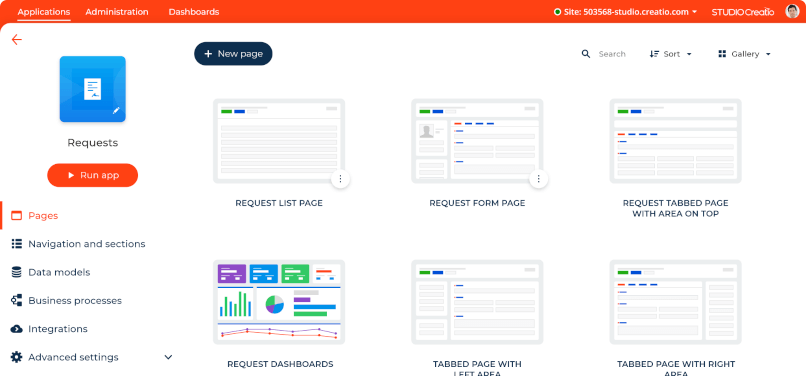What is BPMS?

BPMS definition
BPMS stands for “Business Process Management Software” or “Business Process Management System.” BPMS is a tool for the execution of management methodology to improve an organization’s business processes through identification, modeling, automation, analysis and performance measurement.
The key advantage of BPMS is that its users have the opportunity to actively participate in the improvement of business processes through simple and intuitive tools. All these benefits are possible due to the three components: the means of processes building, their execution (platform) and monitoring (process library).
How it works?

Deep dive into the topic
Key features of Business Process Management System
Process design & execution
Process step prediction
Dynamic Case Management
BPMN support
Ready-to-use process library
Process monitoring






Genuine care for our clients
Try Creatio BPMS
- Easy automation of business processes with simple, intuitive tools
- Ability to manage unstructured processes through DCM
- In-depth analytics of business process performance
- Ready-to-use library processes for design and execution
- Ability to store, sort, organize and search processes in library
Users Love Creatio


FAQ
Why do you need a business process management system?
How to manage business processes using BPMS?
What systems are the key players in the market?
What is bpm methodology?
Generally, BPM software is just a tool for the execution of a new management methodology, called BPM (Business Process Management), its technological part.
In the context of management philosophy, BPM is a combination of ideology and software for business process management. This approach to management first appeared in 2000 and replaced popular business processes re-engineering, which was too complicated and consisted in a fundamental rethinking and radical reconstruction of processes. In a deeper understanding, BPM encourages to move away from a functional approach in company management to its interpretation as a collection of business processes. Unlike reengineering, BPM means continuous improvement of business processes, and its concept is based on the principle of close interaction within the team, with hardware and other systems.










